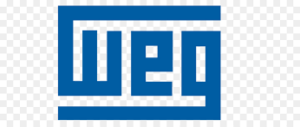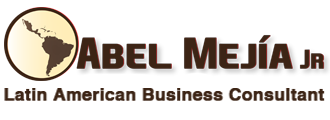 WEG S.A. is a national champion in Brazil. In fact, along with jet maker Embraer S.A., the company is a Brazilian manufacturing powerhouse fabricating and selling high-value finished goods. These finished goods consist of power equipment manufactured in 52 factories located in 15 countries including Brazil. Currently, 45% of the output is manufactured abroad servicing foreign markets and 55% of the output is manufactured domestically in Brazil servicing the local market while exporting substantial shipments of it as well. Founded in the year of 1961 in the city of Jaraguá in the state of Santa Catarina in southern Brazil, the company is the brainchild of a trio of Brazilian entrepreneurs who knew how to delegate authority by specializing in different functions with utmost efficiency and thus synthesizing substantial synergies in the process. These entrepreneurs were Werner Ricardo Voigt, Eggon João da Silva and Geraldo Werninghaus, an electrical engineer, an accountant and a mechanical engineer respectively. Accordingly, Werner Ricardo Voight, a first generation German-Brazilian, took care of research, development and design. Similarly, Eggon Joao da Silva took care of administrative duties including book-keeping, record-keeping, reporting and compliance while Geraldo Werninghaus took over sales, marketing and operations. The latter was also a German-Brazilian but of more distant roots. Moreover, initially known as Eletromotores Jaraguá S.A., the founders decided to change the name of their enterprise by adding the three initials of their first three names respectively, Werner, Eggon and Geraldo and thus WEG shortly thereafter after the official foundation. Altogether, the company has expertise to provide full turnkey systems for a wide variety of industrial applications selling power equipment in 135 countries covering all the continents. Presently, WEG has a staggering product line containing 1,500 items comprised in seven divisions. These divisions are Industrial Electric Motors and Gearboxes, Commercial Electric Motors and Appliance, Automation, Digital and Systems, Power Transmission and Distribution, Power Generation and Industrial Coatings and Varnishes. Likewise, the best-selling products of the company in descending order are electric motors, power generators, transformers and electric controls with an average of 19 million electric motors sold annually alone year in and year out.
WEG S.A. is a national champion in Brazil. In fact, along with jet maker Embraer S.A., the company is a Brazilian manufacturing powerhouse fabricating and selling high-value finished goods. These finished goods consist of power equipment manufactured in 52 factories located in 15 countries including Brazil. Currently, 45% of the output is manufactured abroad servicing foreign markets and 55% of the output is manufactured domestically in Brazil servicing the local market while exporting substantial shipments of it as well. Founded in the year of 1961 in the city of Jaraguá in the state of Santa Catarina in southern Brazil, the company is the brainchild of a trio of Brazilian entrepreneurs who knew how to delegate authority by specializing in different functions with utmost efficiency and thus synthesizing substantial synergies in the process. These entrepreneurs were Werner Ricardo Voigt, Eggon João da Silva and Geraldo Werninghaus, an electrical engineer, an accountant and a mechanical engineer respectively. Accordingly, Werner Ricardo Voight, a first generation German-Brazilian, took care of research, development and design. Similarly, Eggon Joao da Silva took care of administrative duties including book-keeping, record-keeping, reporting and compliance while Geraldo Werninghaus took over sales, marketing and operations. The latter was also a German-Brazilian but of more distant roots. Moreover, initially known as Eletromotores Jaraguá S.A., the founders decided to change the name of their enterprise by adding the three initials of their first three names respectively, Werner, Eggon and Geraldo and thus WEG shortly thereafter after the official foundation. Altogether, the company has expertise to provide full turnkey systems for a wide variety of industrial applications selling power equipment in 135 countries covering all the continents. Presently, WEG has a staggering product line containing 1,500 items comprised in seven divisions. These divisions are Industrial Electric Motors and Gearboxes, Commercial Electric Motors and Appliance, Automation, Digital and Systems, Power Transmission and Distribution, Power Generation and Industrial Coatings and Varnishes. Likewise, the best-selling products of the company in descending order are electric motors, power generators, transformers and electric controls with an average of 19 million electric motors sold annually alone year in and year out.
Overall, the vast lineup of manufactured power equipment includes electric motors, power generators, wind turbines, steam turbines, water turbines, alternators, frequency inverters, direct current converters, alternating current converters, circuit breakers, switchgear, drives, transformers, industrial gearboxes, fuses, contactors, servomotors, battery energy storage systems, industrial sensors, coatings, electrical insulating varnishes, electrical substations, electric panels, electric controls and automation equipment among the main finished goods the company manufactures and sells. In the coatings segment alone, for instance, WEG produces 2 million liters of liquid coatings and 2,500 tons of powder coatings a month on average. By the same token, major competitors of the company include GE Vernova Corporation, Emerson Electric Company Corporation, Hitachi Limited, ABB Limited, Robert Bosch G.m.b.H. and Siemens Energy A.G. The first two just mentioned are listed American multinationals while the last two are German multinationals, one closely-held and the other one listed in Germany respectively. Likewise, Hitachi Limited is a listed Japanese industrial manufacturing conglomerate. ABB Limited, on the other hand, is a dual-domiciled and dual-listed Swedish-Swiss multinational and the most important competitor the company has after competing neck and neck with WEG in several segments such as electric motors and drives. Currently, WEG generates sales of over $ 6 billion a year on average while obtaining profits of just over $ 1 billion a year on average as well. Trading at a steep valuation of over 30 times earnings and thus attaining a market value of over $ 30 billion, WEG is a blue chip in Brazil and a constituent member of the stock market index there known as the IBOVESPA as well as the broader regional S&P Latin America 40. A titan of power equipment manufacturing in its own right, the company spends over 2% of sales annually in research and development. In similar fashion, the company is very active in renewable resource technologies including devises for biomass, wind power generation and solar energy. Furthermore, having 52 manufacturing plants scattered in 15 countries around the world, they occupy an impressive extension of close to a million square meters worth of industrial space and held on its balance sheet as PPE or Property, Plant and Equipment. Likewise, on the commercial side of the business, WEG has over 1,400 service centers in 37 countries globally, selling and servicing proprietary inventory around the world.
To conclude, WEG is a Brazilian exporting champion, manufacturing giant and titan of power equipment sales in Latin America. Having over 40,000 employees on its payroll of various nationalities including over 4,700 engineers, investors of the company trading in Brazil are discounting bright prospects ahead after carefully anticipating awesome performance from organic growth and more importantly from strategic acquisitions of smaller players including a focused overseas expansion into automation and battery energy storage systems. Altogether, WEG has minted five Brazilian billionaires presently ranked by Forbes, all of them adult grandchildren of the original founders except for Livia Voight who is the youngest billionaire on the ranking at 20 years of age and thus not quite a full-grown adult yet. Moreover, the rest of the Brazilian billionaires who are themselves second generation descendants of the original founders are Mariana Voigt Schwartz Gomes, Eduardo Voigt Schwartz, Dora Voigt de Assis and Anne Werninghaus.
